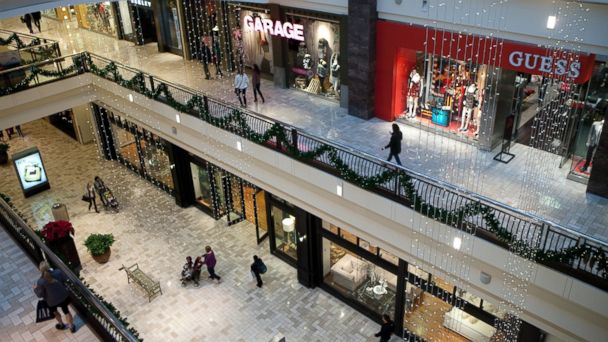Retailers Slammed by Security Breach, Sagging Sales

Customers, many buying holiday and Christmas presents, shop at Tyson's Corner Mall, Dec. 6, 2013 in Tyson's Corner, Va.Melanie Stetson Freeman/The Christian Science Monitor/Getty Images
Many retailers are facing more challenges than ever. This week's store closure announcements by JC Penney and Macy's may be followed by more decisions from brick-and-mortar firms to control costs.
While online retailers reported solid sales gains, fewer shoppers went to the mall during the holiday season. Even Best Buy, which touted its aggressive pricing policy as it fought back against showrooming, did far worse than expected. Its share price was hammered Thursday, falling 29 percent after Best Buy announced a sales decline.
Security is another huge headache. The massive breach at Target and Nieman Marcus stores may have been part of an even larger assault aimed at multiple retailers. The finding comes in a report from iSight Partners, a company that does cyber intelligence work for the government.
The breaches appear to involve different groups of hackers. iSight's chief executive says more attacks are likely. The Wall Street Journal reports parts of the computer code used against Target were on the black market since last spring and were partly written in Russian.
The iSight report confirms that a malicious software that infiltrated the point of sale system at the registers was "almost certainly derived" from BlackPOS, a crude but effective software product.
The computer network at Neiman Marcus was penetrated by hackers as far back as July, sources tell The New York Times. The breach was not fully contained until Sunday.
Lawsuits and government investigations are another problem. Neiman Marcus and Target are being investigated by state Attorneys General in Connecticut and Illinois over the theft of customer credit-card data.
Officials in Florida, Massachusetts and Pennsylvania are also said to be involved. Bloomberg News says Target is "facing almost two dozen lawsuits filed by customers," and has been sued by Connecticut-based Putnam Bank.
While retailers struggle, the giants of the internet grow stronger than ever. The Economist this week calls Google a new GE, which "seems to be planning to become as big in hardware as it is in software."
Days after its $3.2 billion purchase of Nest Labs - known for innovative thermostats and smoke detectors - Google unveiled a contact lens that monitors glucose levels in tears, a potential reprieve for millions of diabetics who have to jab their fingers to draw their own blood as many as 10 times a day.
The prototype is one of several medical devices being designed by companies to make glucose monitoring for diabetic patients more convenient and less invasive. Google says it will take at least five years to reach consumers.
Richard Davies Business Correspondent ABC News Radio abcnews.com Twitter: daviesnow